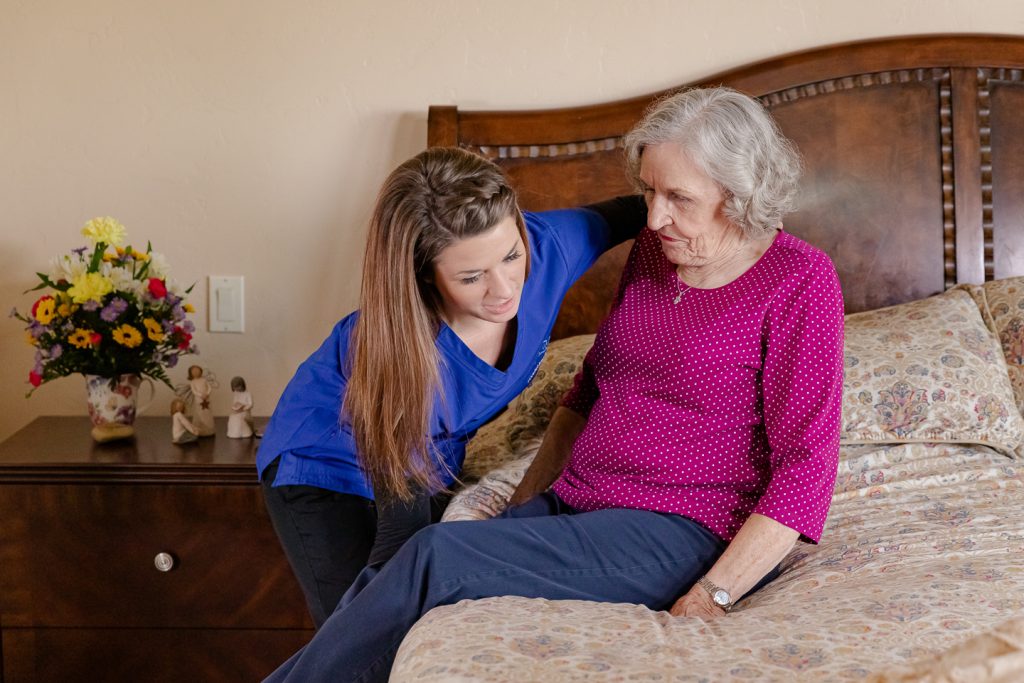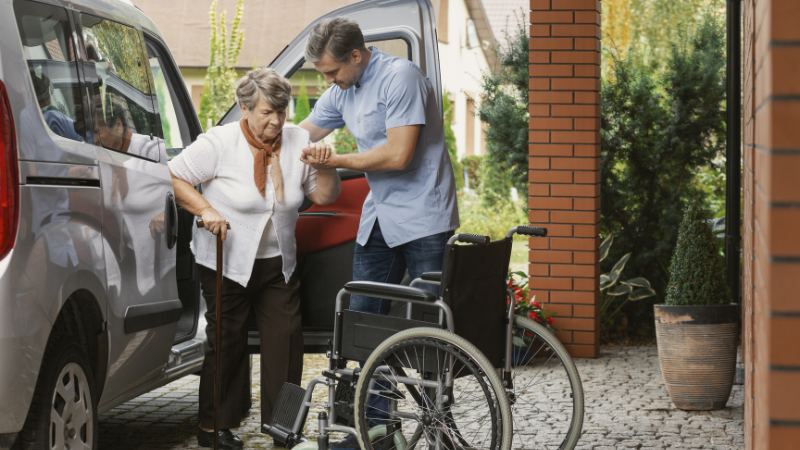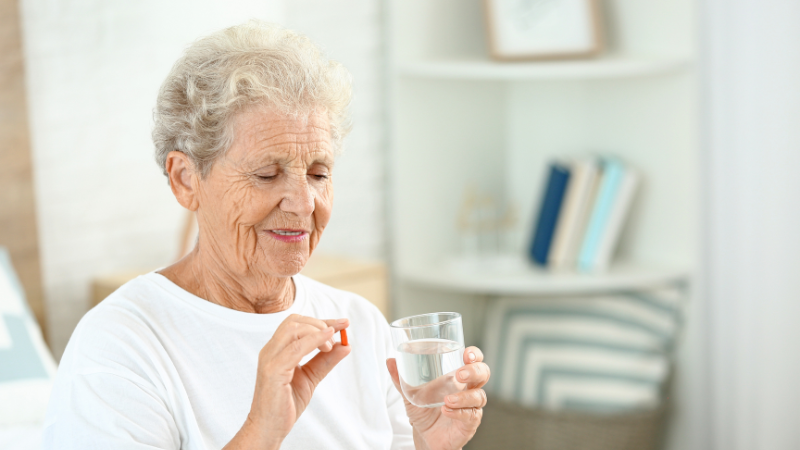

Falls are commonplace accidents that can disrupt the everyday activities of the elderly. Whether the fall leads to a minor bump or a broken bone, it’s important for seniors to manage their pain. The following are tactics they can use to minimize the ache and help the injury heal.
How common are falls in the elderly?
Millions of people aged 65 and older fall each year. Although one out of four seniors experience a fall annually, less than half of them inform their doctor. Unfortunately, falling even once doubles the chances of the aging adult falling again.
Why are seniors at risk for falling?
Risk factors for falls in the elderly include lower body weakness and challenges with walking or balance. Seniors with vision problems may tumble over objects they don’t see. Hazards in the home, such as throw rugs or uneven steps, are also precursors to potentially injurious falls.
Read How to Help a Senior Prone to Falling? to implement effective elderly fall prevention and enhance your senior loved ones’ safety and well-being.
Why are falls in older adults serious?
Falls can lead to severe injuries. One in 10 falls causes an injury that forces the senior to restrict their daily activities. If a fall results in a severe injury, like a hip fracture or a traumatic brain injury, it leads to an emergency room visit or a hospital stay.
Do all falls result in injuries?
Statistics show that not all falls result in injury. However, about 37 percent of seniors who have fallen report the need to seek medical treatment or restrict their activities. But when injuries occur, they can be serious, leading to broken bones or a new fear of falling again.
What injuries can occur after a fall?
Managing pain after a fall is crucial. If a fall leads to a fracture of the hips, wrist or ankle, immediate medical attention is required. The pain can be mild to severe, depending on whether the fracture is simple (a clean break) or compound (the bone cuts through the skin).
If a fracture doesn’t occur, a sprain might instead. The fall causes the ligaments in the joint to stretch or tear. Sprains may be at the wrist, ankle, or knee. The senior may have difficulty moving and bearing weight, because the affected area becomes swollen, tender, or painful.
Pain may develop if a bruise (also known as contusion) appears after the fall. The discoloration occurs when blood vessels under the skin rupture. A head injury after a fall may result in a minor bump or a traumatic brain injury, which can cause headaches, dizziness, and loss of consciousness.
How do seniors manage pain after a fall?
First assess the severity of the injury. Minor pain can be effectively managed at home. But if the pain is severe or prolonged, consult a medical provider as soon as possible for diagnosis and treatment. A doctor performs an MRI scan or X-ray to arrive at an accurate diagnosis.
1. OTC Pain Relievers
Seniors manage pain with over-the-counter pain relievers, like acetaminophen or non-steroidal anti-inflammatory medications (also called NSAIDs). Follow the recommended dosage to relieve mild-to-moderate pain. If the pain worsens or persists, the older adult should seek the advice of their doctor.
2. RICE Method
The RICE method works well in relieving pain and swelling after a fall. The acronym stands for rest, ice, compression, and elevation. Allow the senior to rest and provide ice packs. Apply a compression bandage to reduce swelling. Elevate the affected body part to help drain excess fluid.
3. Physical Therapy
Physical therapy is helpful in restoring the senior’s mobility, strengthening muscles, and promoting overall healing. Pain relief is also a benefit of the guided exercises and stretches done during therapy. A physical therapist may utilize heat or ultrasound to deliver pain relief.
4. Alternative Therapy
Seek a qualified acupuncturist or massage therapist if the senior prefers alternative therapies. The older adult benefits from relaxed muscles, improved circulation and reduced pain. While alternative therapies show promise, it’s important to seek out a professional skilled in specifically treating fall-related injuries.
5. Counseling
Pain after a fall may not always be relegated to the physical body. Seniors can experience emotional repercussions, like a fear of falling again. Enhance psychological well-being with the help of a counselor or therapist. Learning new ways to cope improves overall quality of life.
How are falls prevented in the elderly?
Reducing a senior’s risk for falling is key to avoiding subsequent pain and injury. Caregivers are advised to remove clutter and other trip hazards from the home. Provide footwear with good traction. Schedule regular eye and hearing exams to assess vision and hearing, respectively.
Install good lighting on the stairs and in the bathrooms. Encourage the senior to exercise regularly, which helps strengthen muscles and improves flexibility and balance. A cane, walker, or the help of a caregiver can provide the support the senior needs to maintain balance.
When your aging loved one feels unsure about walking from the car to the doctor’s office, around the neighborhood, or even through rooms in the home, the professional caregivers from Assisting Hands Home Care are ready to provide dependable mobility support.
Elderly fall prevention is a priority. Caregivers assess the home for fall risks and eliminate clutter. We are available to provide transfer assistance, such as from a bed to a chair, to promote safety. Our supervision helps prevent a fall. If the seniors falls, caregivers are trained to respond quickly.

Our reputable home care services are designed to assist seniors with the activities of daily living. Care includes help with personal hygiene tasks, meal preparation, grocery shopping, light housekeeping, and medication reminders. We’re also great companions who hold conversations and play games.
Non-medical care services are available whenever older adults need extra in-home support, whether that’s short-term or indefinitely. We’re available for respite care, overnight care, 24-hour care, and hospice care, among others. Skilled caregivers provide compassionate memory care and Parkinson’s care.
A licensed, bonded and insured caregiver from Assisting Hands Home Care who monitors your aging loved one provides peace of mind to not only the senior but to families. We are privileged to serveseniors in Sarasota and Tama, FL areas. Schedule your free in-home consult today and learn about quality elder care.


